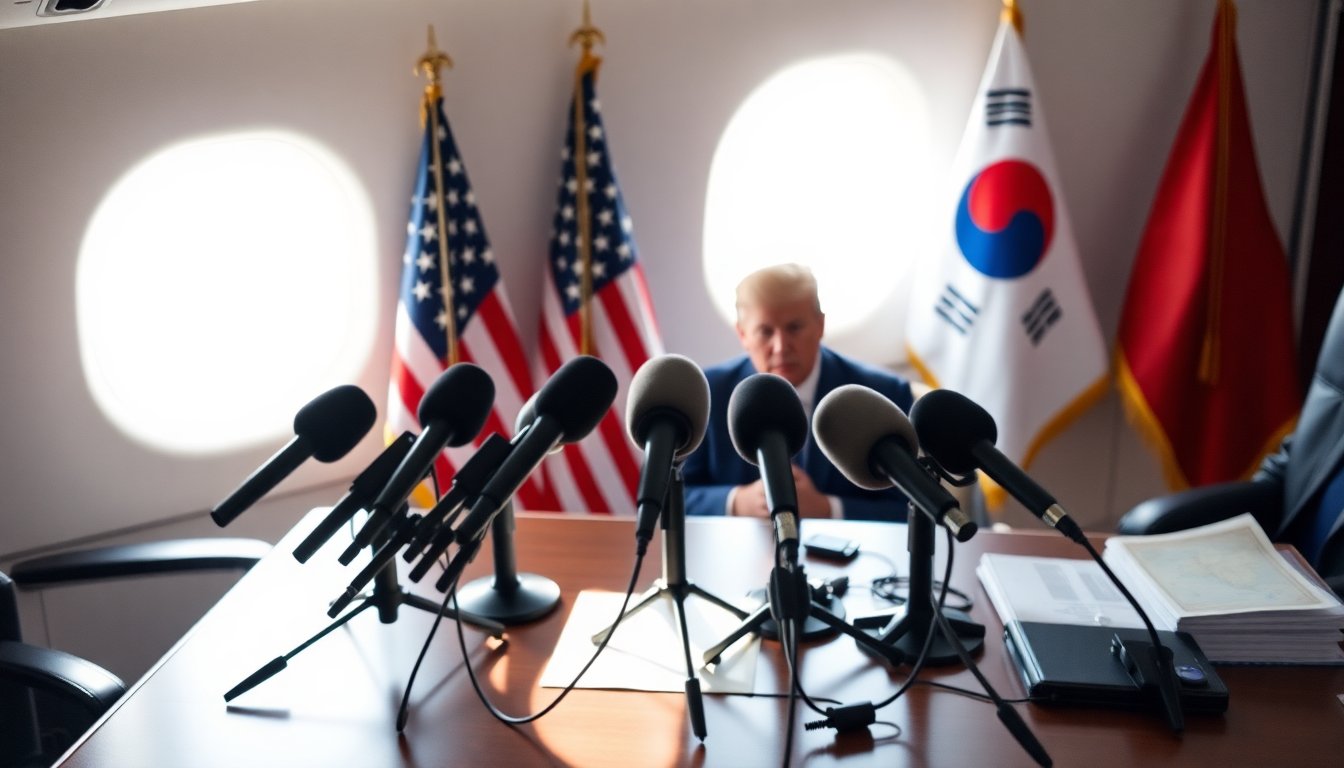Table of Contents
In an unexpected development, President Donald Trump has expressed a willingness to meet with North Korean leader Kim Jong Un during his upcoming trip to Asia. This announcement comes shortly before his discussions with the newly elected president of South Korea. The possibility of this meeting has generated considerable interest among international observers, as it could mark a crucial moment in the ongoing dialogue between the United States and North Korea.
During a press conference aboard Air Force One, Trump stated, “I would be open to it, 100%. I have a good relationship with Kim Jong Un.” This assertion highlights the potential for diplomatic engagement at a time when North Korea’s nuclear capabilities are a significant concern for global security.
The backdrop of diplomatic relations
Trump’s comments follow a history of notable interactions with Kim, beginning with their landmark summit in Singapore in 2018. This meeting marked the first time a sitting U.S. president met with a North Korean leader. Initial reactions to the summit were positive, yet subsequent discussions have stalled, primarily due to disagreements over denuclearization and the related terms. As the President prepares for his trip to Asia, he has acknowledged North Korea’s status as a nuclear power, stating, “They have a lot of nuclear weapons, and I know everything about them.”
Recent developments and implications
In anticipation of the trip, South Korea’s Unification Minister Chung Dong-young underscored the significance of a potential meeting, expressing hope that the leaders would seize this opportunity. He indicated that there is a “considerable” chance of an encounter, suggesting North Korea is attentive to U.S. actions and showing a readiness for dialogue. South Korean officials have proposed that the Asia-Pacific Economic Cooperation (APEC) summit could provide a suitable backdrop for this meeting, adding another layer of complexity to the situation.
Despite the optimism surrounding these discussions, challenges persist. North Korea has previously rebuffed outreach from the Trump administration, raising doubts about their willingness to engage in serious talks. Additionally, the ongoing geopolitical climate, particularly the tense trade relations between the U.S. and China, could overshadow any potential dialogue with Kim.
The significance of a potential meeting
If a meeting takes place, it may signal a renewed commitment to dialogue, potentially opening avenues for future negotiations. Kim Jong Un has noted that he has “fond memories” of his interactions with Trump and has expressed a willingness to engage, provided the U.S. reconsiders its demands regarding North Korea’s nuclear arsenal.
Looking ahead: The stakes involved
The global community is closely monitoring the evolving dynamics between these two leaders. A successful meeting could foster a new era of cooperation and diplomatic engagement, while failure could escalate tensions and further stall the peace process. As Trump prepares for his trip, the importance of his relationship with Kim remains critical, and the outcomes of their interactions could have lasting implications for international relations.
The prospect of President Trump meeting with Kim Jong Un presents both opportunities and challenges. The path forward remains uncertain, but the potential for dialogue offers hope amid a complex and often volatile geopolitical landscape.


